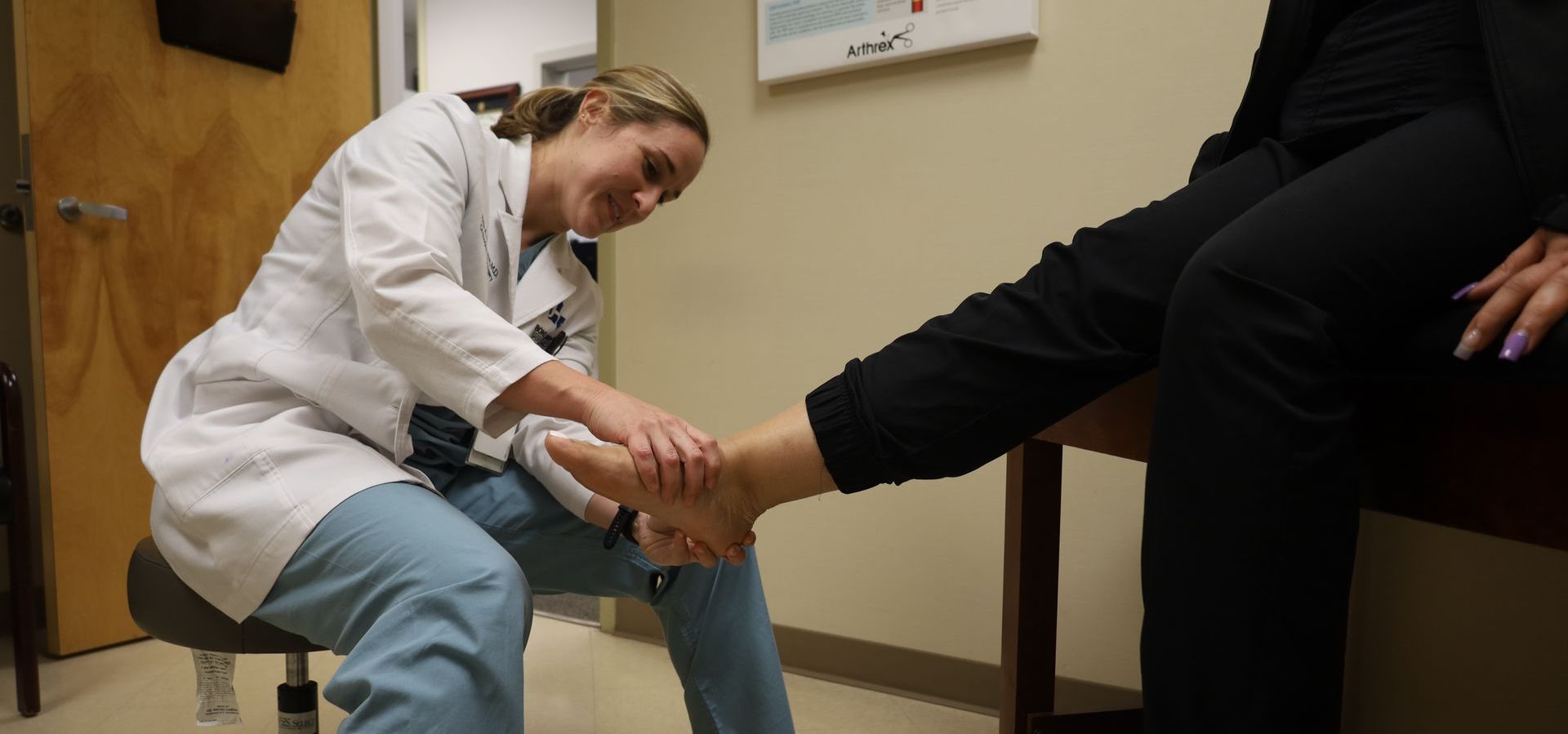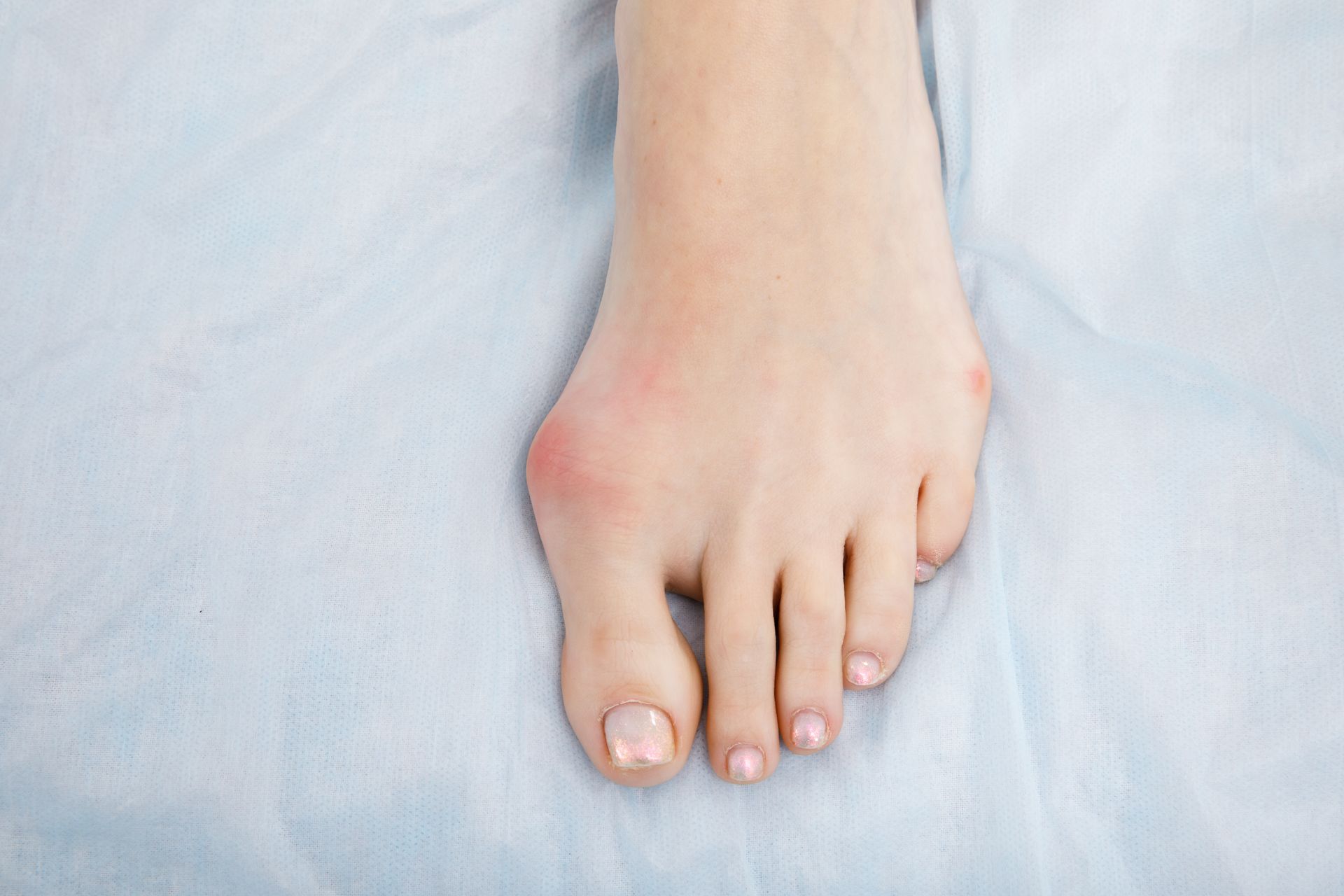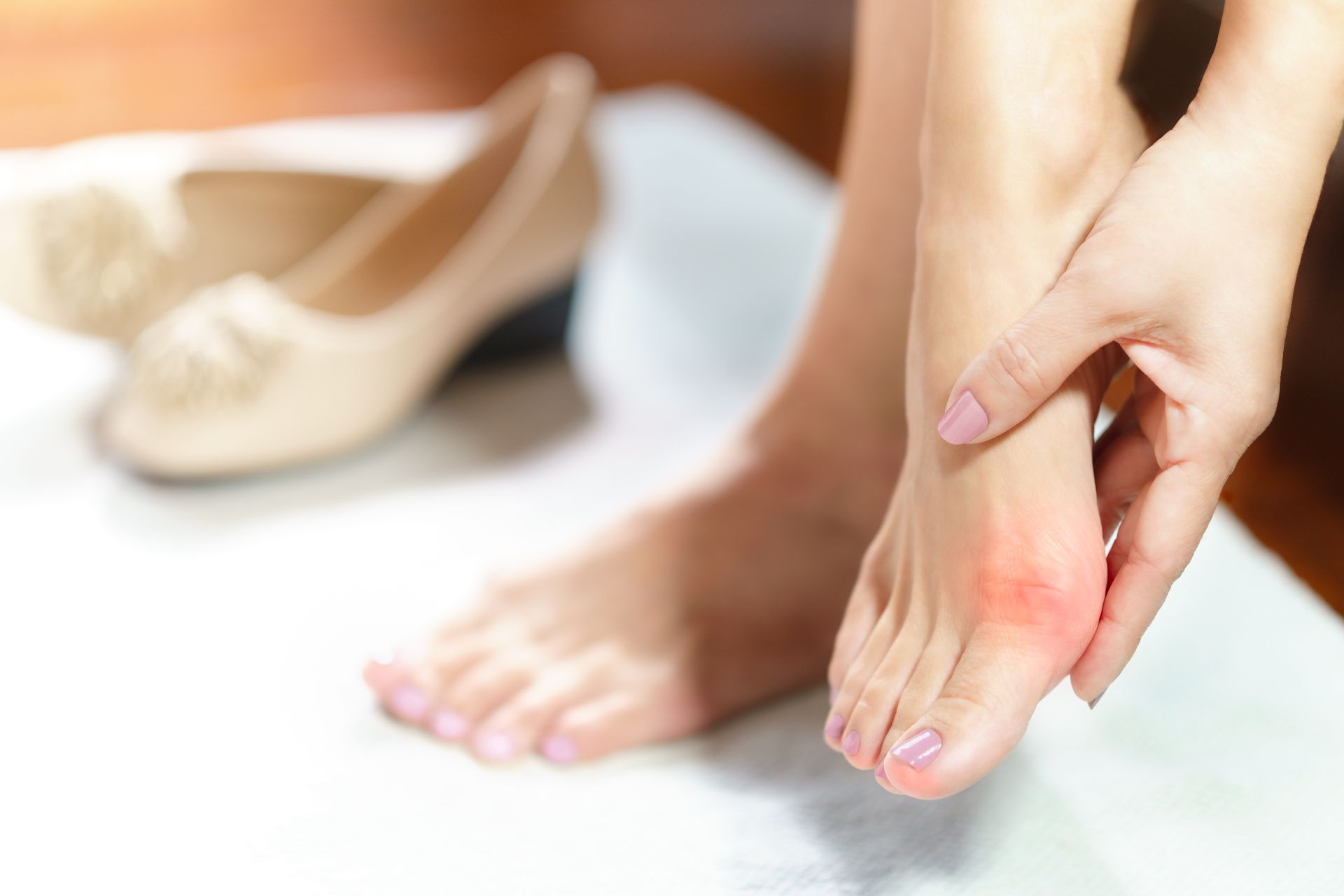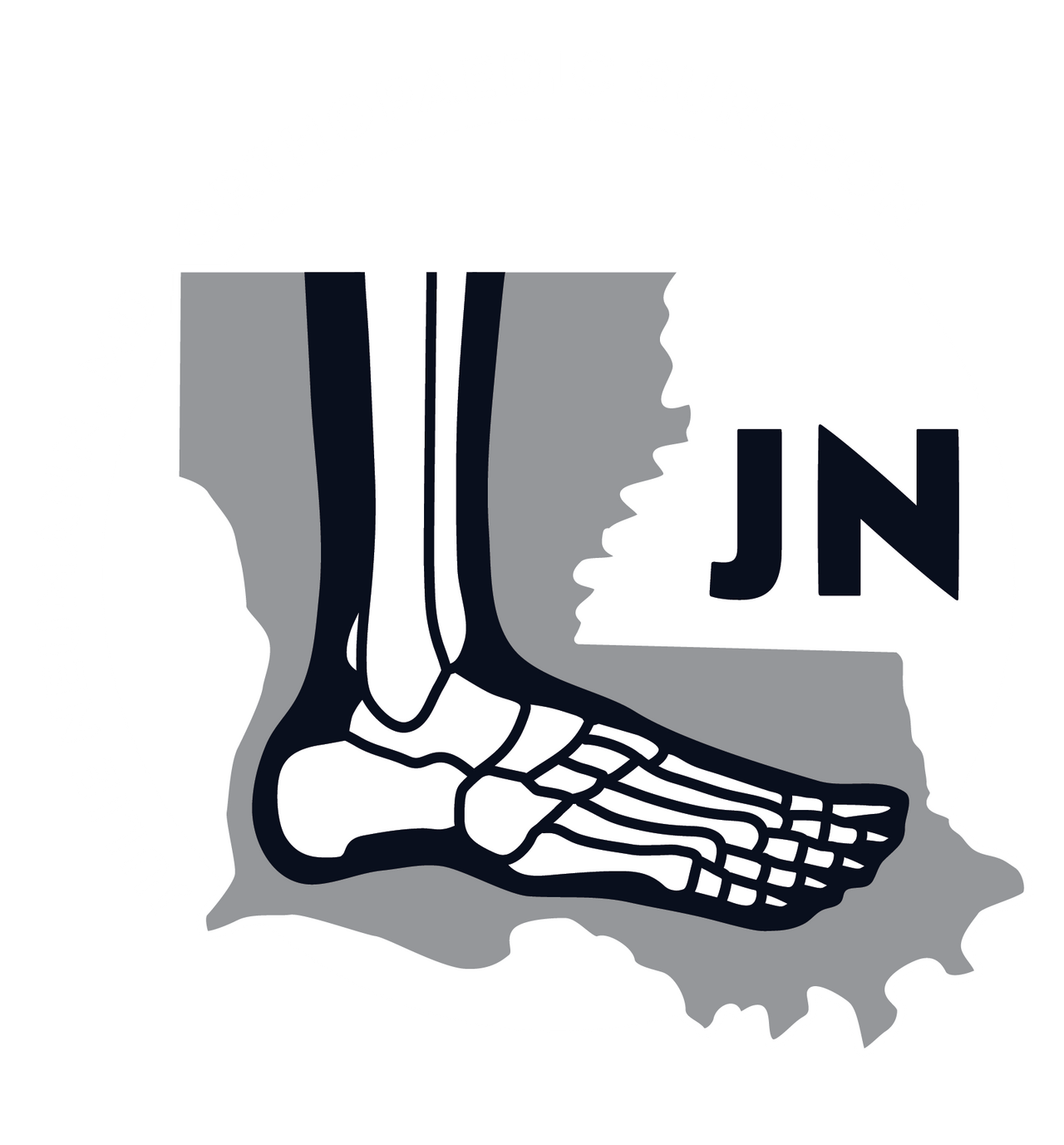Bunions can make everyday activities, such as walking, running, or even slipping on your favorite shoes, painful and frustrating. As a former LSU Division I soccer player and dedicated triathlete and runner, Dr. Julie Neumann has experience with bunion pain. That first-hand perspective means she understands how each step can hurt, and how important it is to get back to the activities you love. As a board-certified orthopedic surgeon fellowship-trained in both foot and ankle and sports medicine care, Dr. Neumann offers both non-surgical solutions and advanced bunion surgery right here in Baton Rouge.
What Is a Bunion?
A bunion, or hallux valgus, is a bony bump that forms at the base of the big toe. It occurs when the bones in the forefoot shift out of alignment, causing the big toe to angle toward the second toe.
Common symptoms include:
- Pain or tenderness at the joint of the big toe
- Redness, swelling, or inflammation
- A visible bump along the inside of the foot
- Limited range of motion in the toe
- Difficulty fitting into shoes
What Causes Bunions?
Several factors can contribute to bunion development:
- Genetics: Inherited foot structure is a leading cause
- Footwear: High heels or narrow shoes may worsen alignment
- Flat feet or abnormal arches
- Joint instability
- Injury or overuse
Over time, these issues can lead to joint misalignment, chronic discomfort, and worsening deformity.
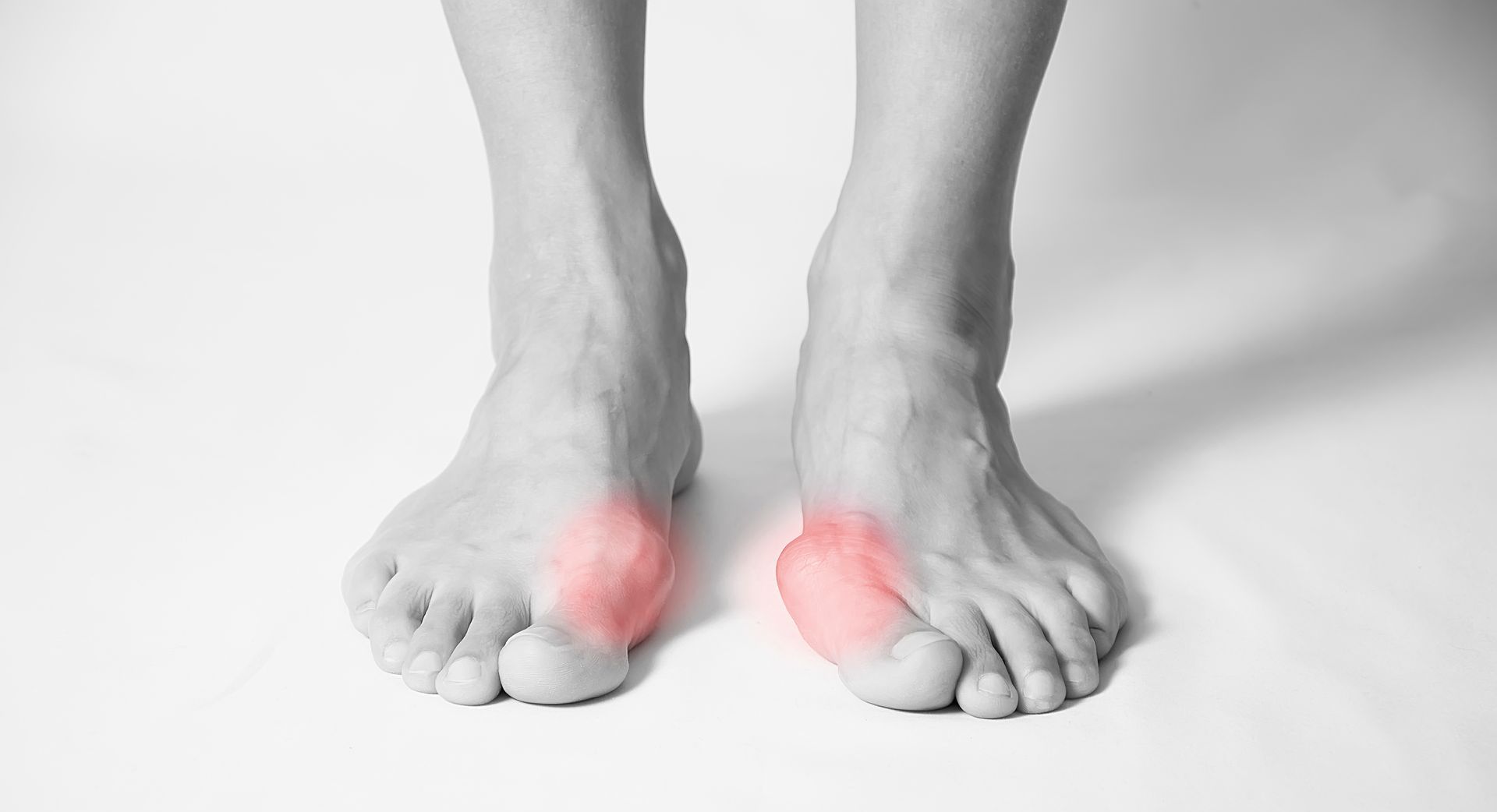
At-Home Bunion Treatments
In early stages, at-home care can help reduce pain and slow progression. These include:
- Switching to wide, supportive footwear
- Using bunion pads or gel inserts
- Applying ice to reduce inflammation
- Taking over-the-counter anti-inflammatories
- Wearing toe spacers or night splints
- Stretching and foot-strengthening exercises
These strategies may alleviate discomfort but do not address the underlying structural cause.
Non-Surgical Bunion Treatment Options
Not all bunions require surgery. Dr. Neumann may recommend:
- Orthotics to support proper alignment
- Shoe modifications or inserts
- Physical therapy to improve foot mechanics
- Cortisone injections (in select cases)
If conservative options no longer provide relief, surgery may be the next step.
How Do I Know If I Need Bunion Surgery?
You might be a candidate for bunion surgery if:
- Pain affects your daily activities
- Shoes are difficult or painful to wear
- The bunion continues to worsen over time
- Non-surgical care is no longer effective
Surgery realigns the bones, relieves pressure, and restores foot function.
Types of Bunion Surgery
A variety of factors can influence Achilles tendon injuries:
Dr. Neumann tailors each surgical plan to your foot structure and lifestyle. Common procedures include:
- Lapiplasty Procedure – for instability or joint hypermobility
- Chevron (Austin) Osteotomy – for mild to moderate bunions
- Scarf Osteotomy – more substantial correction for larger deformities
- Minimally Invasive Bunion Surgery – less tissue disruption and quicker recovery when appropriate
All surgeries are performed with precision and a focus on long-term outcomes.
What’s Recovery Like After Bunion Surgery?
Recovery depends on the procedure and individual healing, but here’s a general timeline:
- Weeks 1–4: Rest, foot elevation, no weight-bearing
- Weeks 4–6: Transition to walking boot or surgical shoe in select cases
- Weeks 6–8+: Gradual return to regular footwear and activity
- 3–6 months: Ongoing improvement in swelling, stiffness, and mobility
Dr. Neumann provides a customized recovery plan and closely monitors your progress to ensure optimal results.
Are There Risks with Bunion Surgery?
Bunion surgery is safe and effective, but as with any procedure, risks may include:
- Infection
- Nerve irritation or numbness
- Toe stiffness
- Recurrence of the bunion
- Delayed bone healing or nonunion
Dr. Neumann employs advanced techniques and adheres to strict safety protocols to minimize these risks.
What Happens If I Don’t Treat My Bunion?
Surgery for bunions is indicated for pain, not cosmesis. Untreated bunions can cause long-term problems, such as:
- Worsening foot deformity
- Chronic joint pain
- Arthritis in the big toe
- Corns, calluses, or hammertoes
- Deconditioning due to difficulty walking or staying active
Early treatment can prevent these complications and improve quality of life.
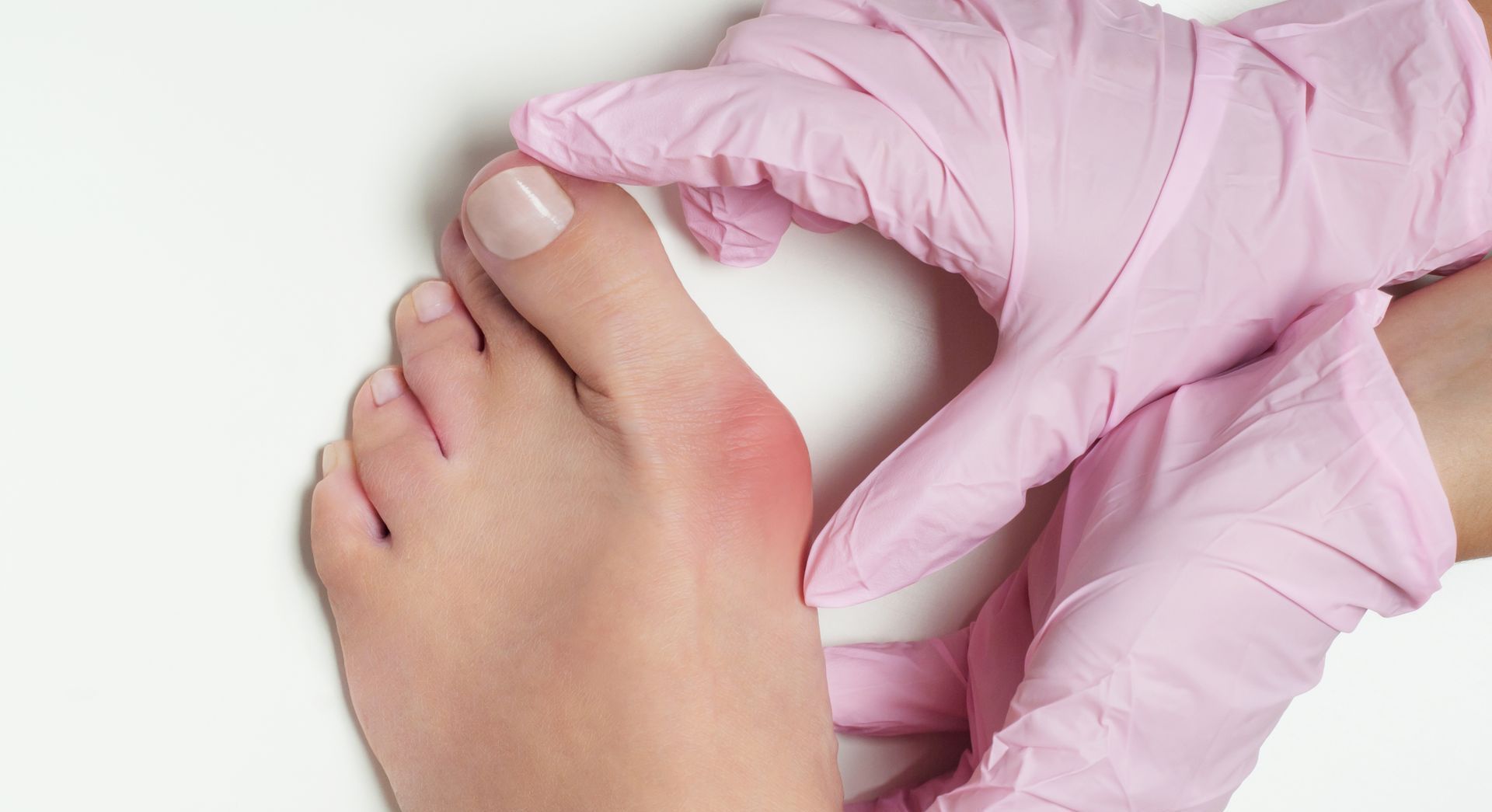
Why Choose Dr. Julie Neumann for Bunion Surgery?
- Board-certified orthopedic surgeon
- Fellowship-trained in foot and ankle surgery and sports surgery
- Personalized, comprehensive treatment plans
- Skilled in both traditional and minimally invasive surgery
- Passionate about helping Baton Rouge patients stay active and pain-free
Dr. Julie Neumann combines orthopedic expertise with a firsthand understanding of bunion pain to deliver care that’s both effective and personalized. From non-surgical treatments to advanced bunion correction, she helps patients in Baton Rouge find lasting relief and get back to the activities they enjoy.
